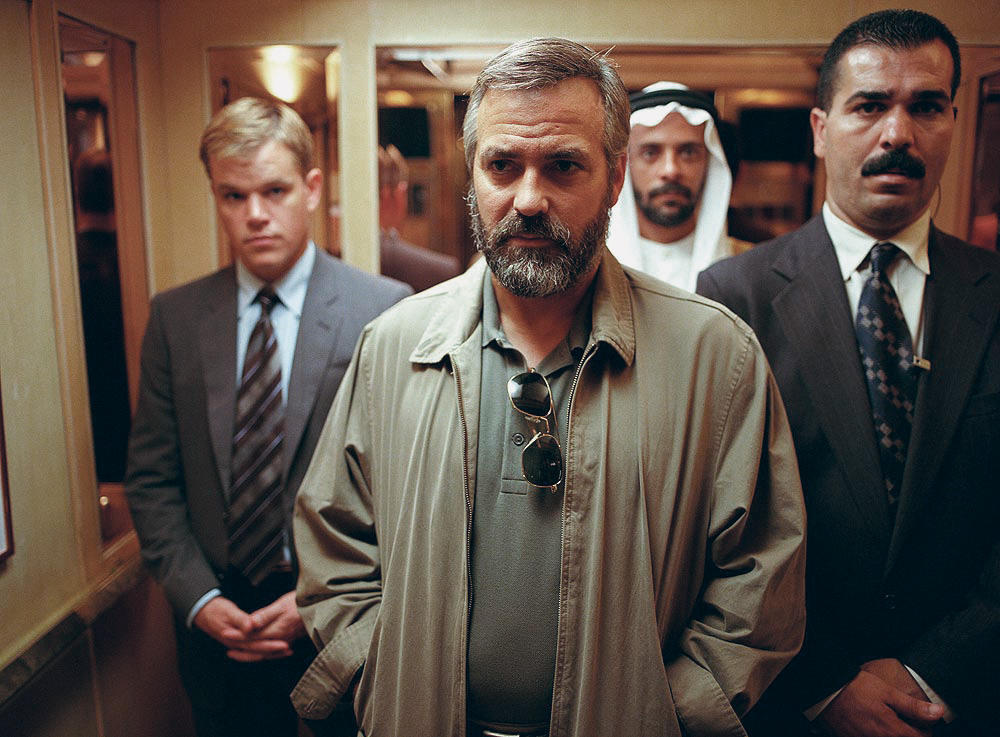
1.Saw Syriana as part of a two-part Clooneyathon a friend and I curated, impromptu, when we agreed to forego braving “Bareback Mounthim” opening day because it was playing in Los Angeles only at the nightmare “Art Deco-inspired” Pacific Theaters fourteen-screen cineplex in the middle of an “urban shopping village” called The Grove. (We hate The Grove.) Instead: a matinee of Good Night and Good Luck, the black-and-white period drama about Edward R. Murrow’s reporting, as part of his popular 1950s documentary news show, See It Now, on Senator Joseph McCarthy and the hearings to expose American “subversives” (Communists and their sympathizers), which Clooney directed, co-wrote, and in which he co-stars; and then Syriana, written and directed by Stephen Gaghan and starring Clooney, who is also one of the film’s executive producers.
2. What to say about Munich? Not much hope for a movie whose “moral complexities” (?!) are bookended with the opening words “Inspired by real events” and a closing pan of downtown New York, long hold on CGI-reconstructed Twin Towers. Steven Spielberg couldn’t possibly trust his audience to remember the event by just situating his closing scene with the actual New York skyline in the background, unmanipulated.
3. The McCarthy hearings were the first-ever American federal hearings broadcast on television. Murrow, with the help of his See It Now staff and his producer, Fred Friendly, investigated and reported on the worth of these hearings and the Senator’s misuse and abuse of legislative power. Admirable perf. by David Strathairn as Murrow. Solid perf. by Clooney as Friendly. Moody, careful art direction and, as a worthy sign of its “adult” perspective, lots of cigarette smoking.
4. Munich wants us to empathize with Jewish pain, Jewish injustice. Fine. But while praised for its supposed dealings in moral complexity, the character development for any of the Palestinians in the film is scant and peripheral (daughter of a Palestinian to be assassinated plays the piano, etc), while the Israeli characters are given a lot of detailed backstory and emotive space-time. It’s as if Black September acted randomly, out of the blue, unprovoked. The audience is meant to feel the struggle of Eric Bana’s character, Avner, the head assassin — his righteous duty, his patriotism and heritage, and then his questioning of his entire raison d’ être. With Munich, essentially a first-person Xbox game, Spielberg fancies himself the equal of Hannah Arendt.
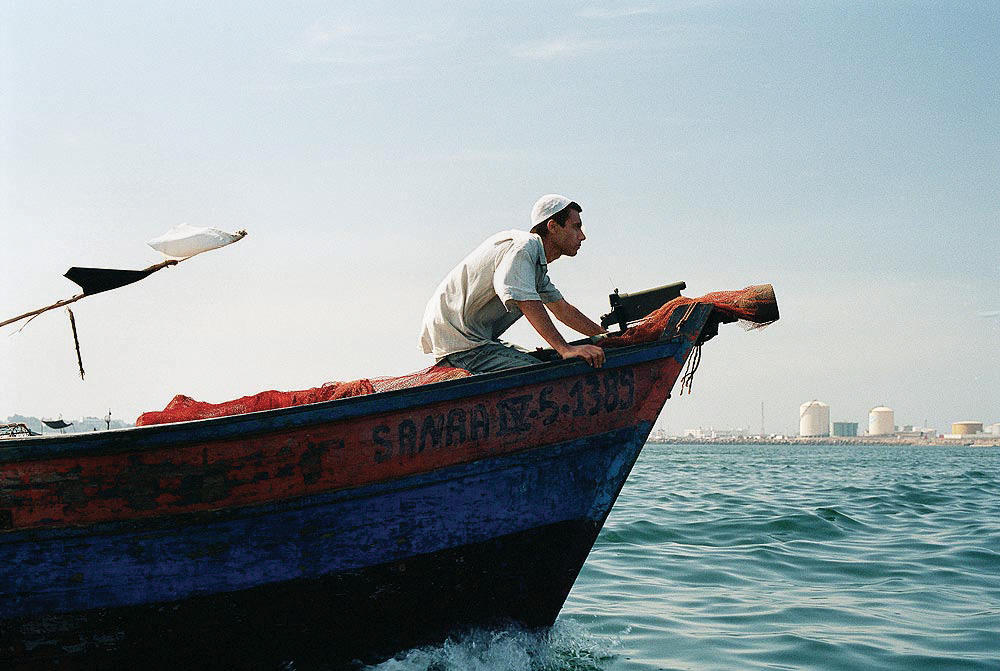
5. Good to pair Good Night, and Good Luck with Syriana. Good to see a Hollywood star using his clout to try to effect, well, something — political cogitation, actual commentary (if not searching critique), and/or even a fairly complex acknowledgment that not every American thinks the global havoc wreaked in “our” name and national safety is swell or isn’t metastasizing economic and racial strife “at home” (insert pic of Hurricane Katrina “survivors” lined up, surviving, in the filth of the Lousiana Superdome). The Murrow flick operates as an allegory for the current condition of the fourth estate in America, with Murrow as a symbol for the responsibilities and duties of journalism, actual reporting, and probing investigation, as well as for the dire consequences should the media abandon its purpose for entertainment, convenience, cowardice and profit. The darkest point of Clooney’s allegory is how long ago the abandonment, devolution, and cowardice began-basically, at the inception of television. There’s a dryly amusing and bittersweet moment when Murrow — under pressure from higher-ups at CBS to “make up” for his steadfast belief in the reporter’s mission and his tenacious focus on the Senator, which doesn’t always tally with entertainment “value” and market share — must do an “at home” interview with Liberace. Rather than spinning on allegory, Syriana constructs a web of seemingly unrelated interrelating tales to rally some notion of what’s at stake and who’s in control of Operation Freedom. Syriana’s strength-in its writing and direction — is not to reduce its conceit or argument to anything as consoling but simple-minded as “blood for oil."1 Neither astonishing nor groundbreaking, these two Clooney films-his production company commandeered both and their casts overlap here and there-nevertheless become more interesting and powerful than most other Hollywood productions by not offering solutions but attempting, with almost Brechtian zeal, to affect their audience. Witness the scene where Clooney’s CIA operative character is "interrogated” with the help of the removal of each of his fingernails.
6. I survived Munich. It should have been called Supersexy Sabra Assassin. Eric Bana is always the best (and sexiest) thing in any movie he’s (yet) made. If you don’t believe me, rewatch Troy, a waste of available male flesh ready to rumble nude for any reason whatsoever. In Troy, Bana’s actually sexy; Brad Pitt’s hyperbolically worked-out physique is merely anatomically illustrative. There should have been, at the very least, equal time for Bana’s bod as there was for Pitt’s — an elaborate bathing sequence or full-frontal in the climactic scene in which Bana dons battle gear. As I said, a waste of celluloid and Steve Reeve — like potential for Classical beefcake. Steven Spielberg, although vaunted as a great director, is ham-fisted, afraid of complication and of not leaving his audience satisfied, gratified, even stroked. The film repeats and repeats the awful moment when Black September assassinate the Israeli Olympic team at the airport-as if in a film entitled Munich that runs over two-and-a-half hours, someone might forget. In one of the worst closing sequences of any film I’ve ever seen, Bana is made to fuck his wife while flashing back to the gunning down of his Israeli compatriots. Not sure how to read this: Jews should best fight terrorism by having more babies? Avner’s sperm is bulletlike, lethal? The cycle of life and death, terrorist aggression and retaliation, goes on? This is moronic. But then Spielberg has never trucked in thinking. Who could find A.I.: Artificial Intelligence anything other than ridiculous? Let me nutshell it for you, Steven. Is it morally dubious to assassinate people? Yes, it is, which isn’t to say it hasn’t been done, in various manners, by any government with the means. “Eye for an eye” is justification for the death penalty.
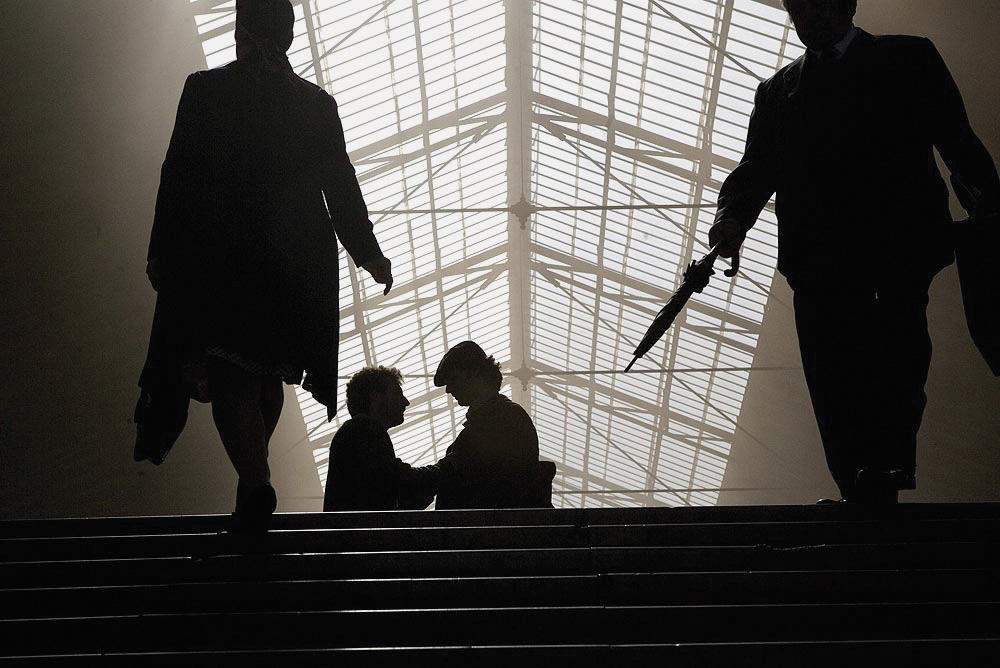
7. Both films are about the discontents of masculinity, even the failed communications and relations between fathers and sons. In Syriana, there are troubles and misunderstandings between George Clooney’s character and his son; between Matt Damon and his two sons; between the dying Emir and his two sons who vie for power; between the character who becomes a suicide bomber and his father. In Munich, Avner strives to gain the respect or answer the call of duty of a father who is never seen, a kind of ghost. Neither film broaches the dynamics of homosociality and possible homosexuality at work in the current conflagrations, although Gaghan paints the son who becomes Emir with a delightfully lavender brush. Only Syriana tries to situate its goings-on in relation to what might be called feminist concerns, to consider or acknowledge the lack of women in positions of power in both the US and the Middle East: Syriana’s opening (establishing?) shot is of an Iranian woman changing outfits, from her tight Cavalli-esque top and patent Manolos into a chador and sturdy, dowdy work shoes. This transformation could be seen as unresolved, uninterrogated, and yet central to understanding (if not solving) the entire sequence of events about to unfold, to the representation of the situational mess.
8. With Munich, Spielberg makes a weak attempt to link Black September’s terrorist actions at the 1972 Munich Olympics to the Israeli government’s response to the events of today — thus the CGI Twin Towers that end his film. Other than, I assume, unintentionally making America and Israel phantasmatic stand-ins for one another, securing a psychic relation between them perhaps deeper than any actual one, this is miserable. While Syriana isn’t as complex — in narrative structure or in political analysis — as it’s purported to be, it is more complex than most US television news coverage in coming to terms with representing how complicated and capital-driven the situation is.
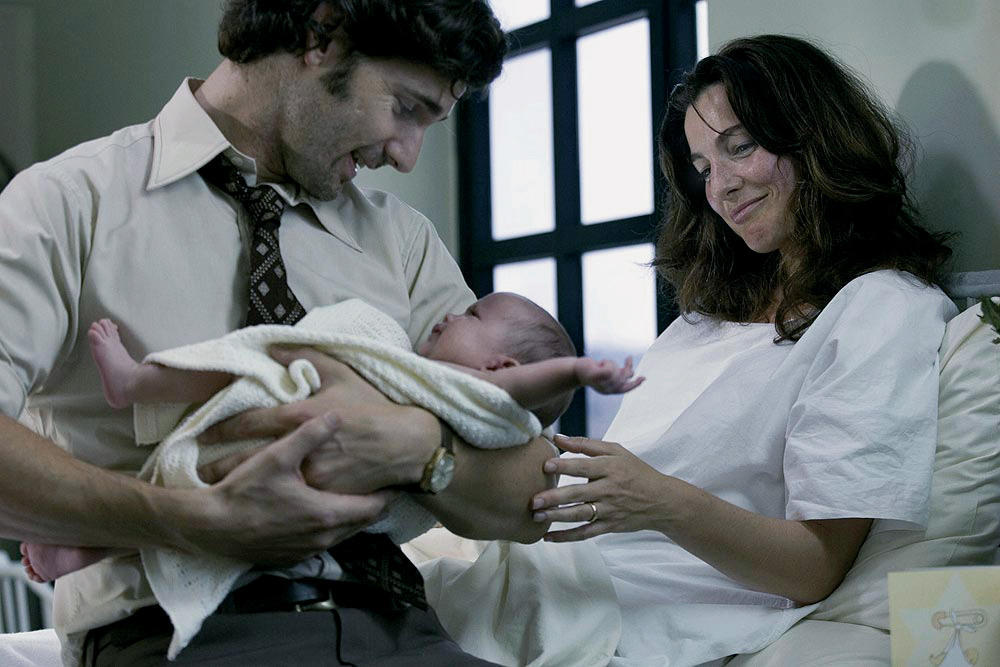
- I’m convinced that the US will pull most of its troops out of Iraq around the time the number of American soldiers dead equals the number of those Americans who died on 9/11. I know this makes no sense, but I also know that doesn’t mean such poetry won’t come pass. (I know that this equation takes no account of the tens of thousands of Iraqis killed; that is part of the point of its fucked up mathematics.)
10. A text too rarely mentioned in terms of the West’s confrontations with the Middle East is Jean Genet’s final novel, Captif Amoureux (Prisoner of Love). Soon after having “smuggled himself across the Canadian border into the US to speak on behalf of the Black Panthers at Stony Brook in March 1970,” in the autumn of that year, as Ahdaf Soueif writes in her introduction to the New York Review of Books edition of the novel, Genet “turned up in the Palestinian bases in Jordan. He was to stay until the end of May 1971 and then-intermittently-through the end of 1972.” But it would be another ten years until he started to write what would become Prisoner of Love. As Soueif continues:
[I]n September 1982, Genet (at the request of his Palestinian friend Leila Shahid) visited Beirut and found himself in the middle of the Israeli invasion of the city. He was, it seems, one of the first foreigners to enter the Palestinian refugee camp of Chatila after the Christian Lebanese Phalange, with the compliance of the Israeli command, tortured and murdered hundreds of its inhabitants. There, pushing open doors wedged shut by dead bodies, Genet memorized the features, the position, the clothing, the wounds of each corpse till three soldiers from the Lebanese army drove him at gunpoint to their officer
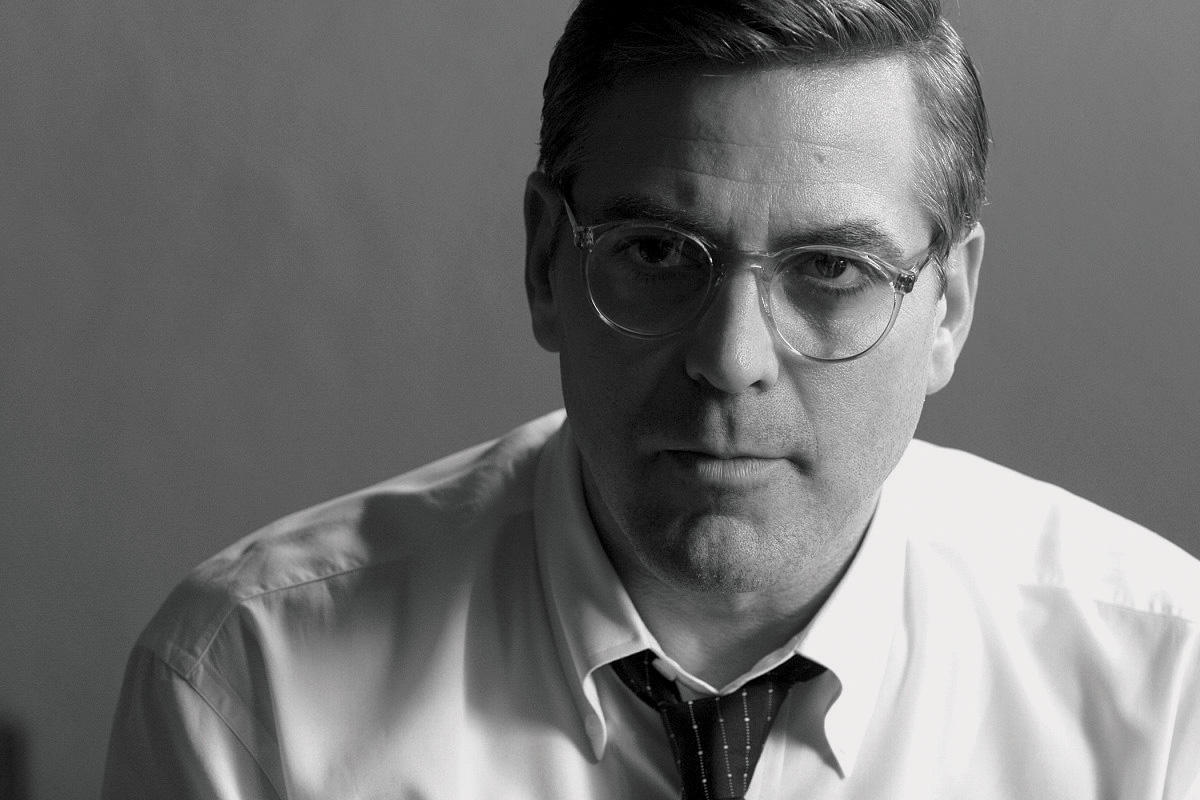
On the first page of Prisoner of Love, Genet writes, “Reading between the lines is a level art; reading between the words a precipitous one. If the reality of time spent among — not with — the Palestinians resided anywhere, it would survive between all the words that claim to give an account of it. They claim to give an account of it, but in fact it buries itself, slots itself exactly into the spaces, recorded there rather than in the words that serve only to blot it out. Another way of putting it: the space between the words contains more reality than does the time it takes to read them. Perhaps it’s the same as the time, dense and real, enclosed between the characters in Hebrew.”
11. “Our” responsibility is to see and to try to understand the space between the images, which just may contain more reality as well, between what is shown and what isn’t.
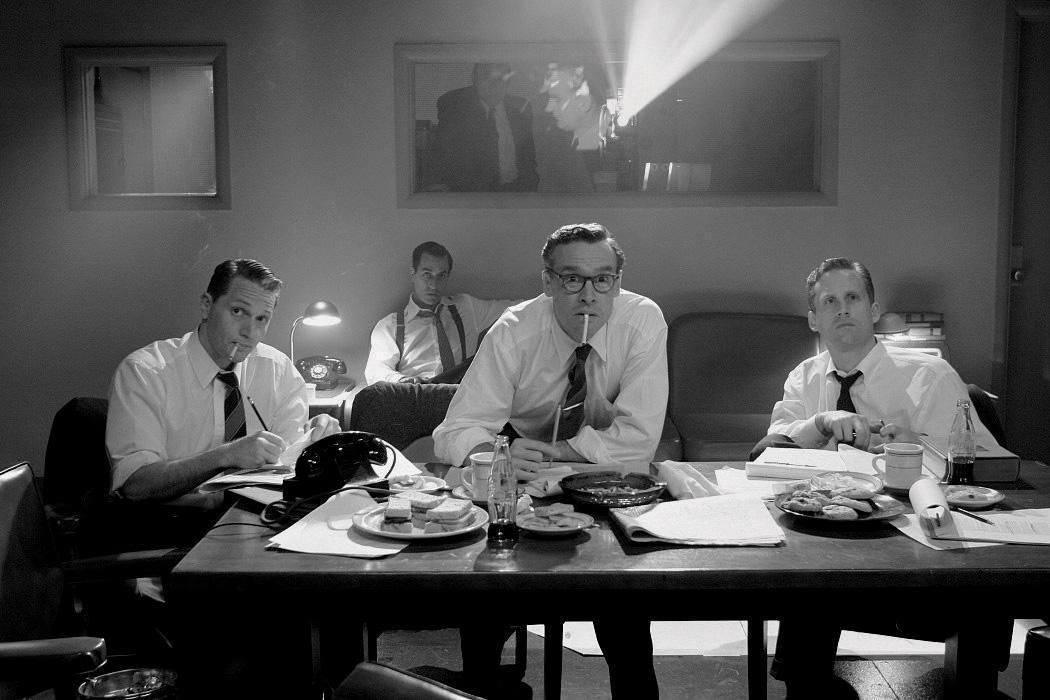
1 For anyone still committed to the “blood for oil” argument, read Afflicted Powers: Capital and Spectacle in a New Age of War by Retort. While the book never offers any solutions or theories for moving beyond the given, dismal state of things, its analysis of the phrase “blood for oil” provides some of the book’s most cogent thinking. “American empire cannot forgo oil: its control is a geopolitical priority. But these strategic and corporate oil interests cannot, in themselves, credibly account for an imperial mission, however ineptly prosecuted, of the sort we have witnessed over the last two years. Rather, what the Iraq adventure represents is less a war for oil than a radical, punitive, ‘extra-economic’ restructuring of the conditions necessary for expanded profitability-paving the way, in short, for new rounds of American-led dispossession and capital accumulation. This was a hypernationalist neo-liberal putsch, made in the name of globalization and free-market democracy. It was intended as the prototype of a new form of military neo-liberalism. Oil was especially visible at this moment of extra-economic imposition because, as it turned out, oil revenues were key to the planning and financing of the military exercise itself, and to the reconstruction of the Iraqi 'emerging market’ (page 72).